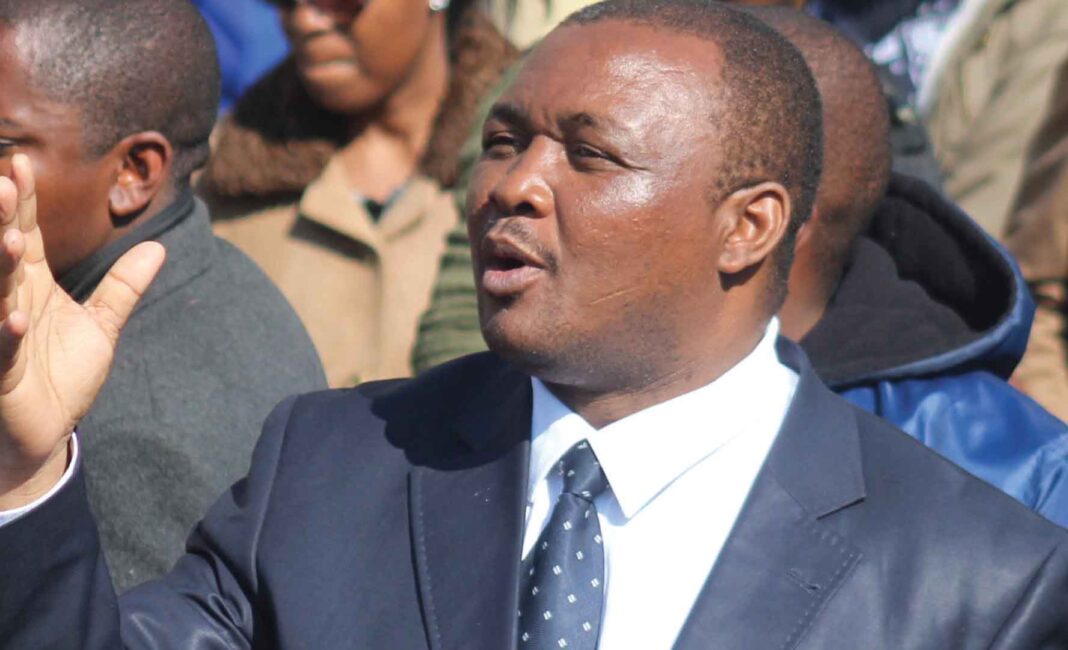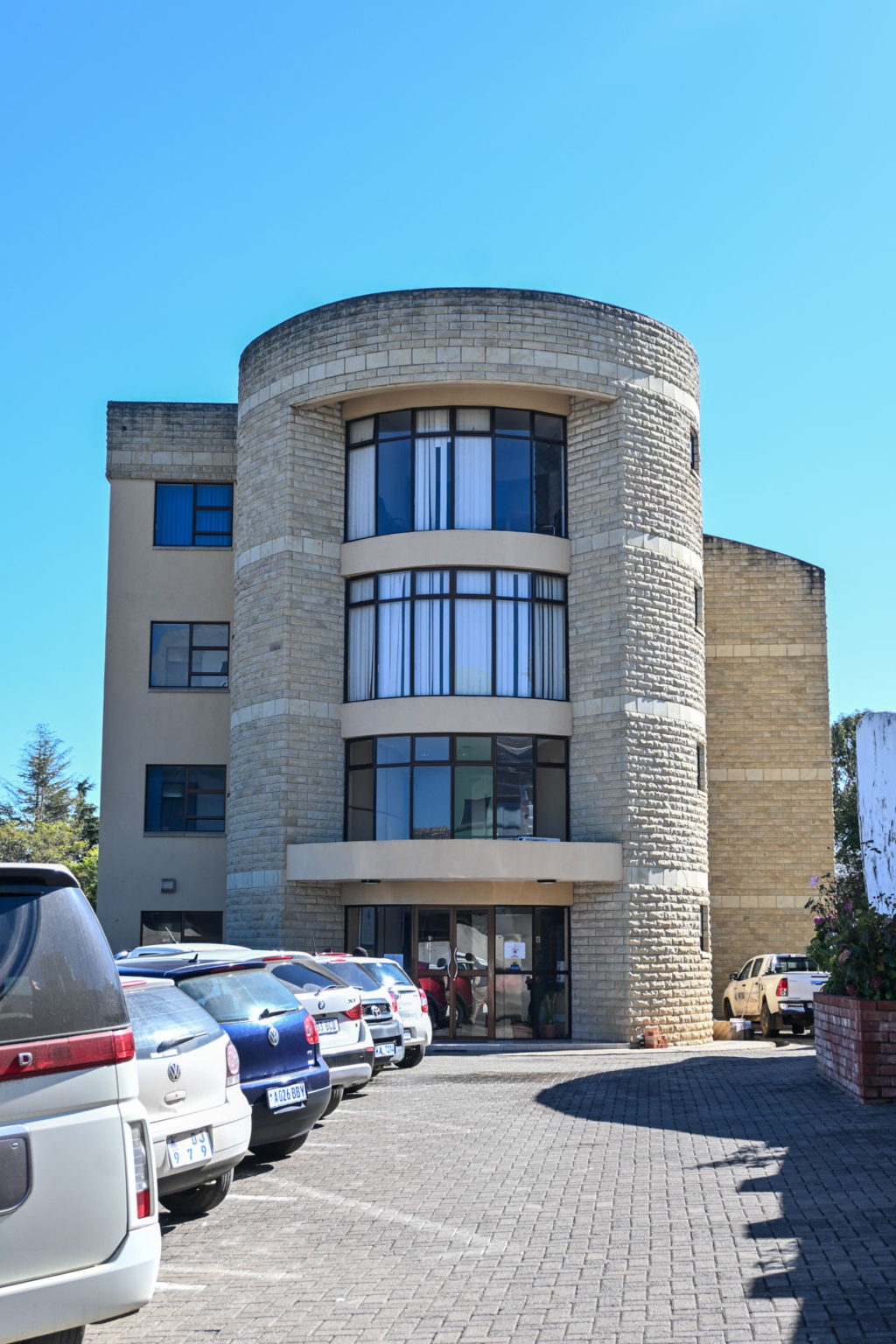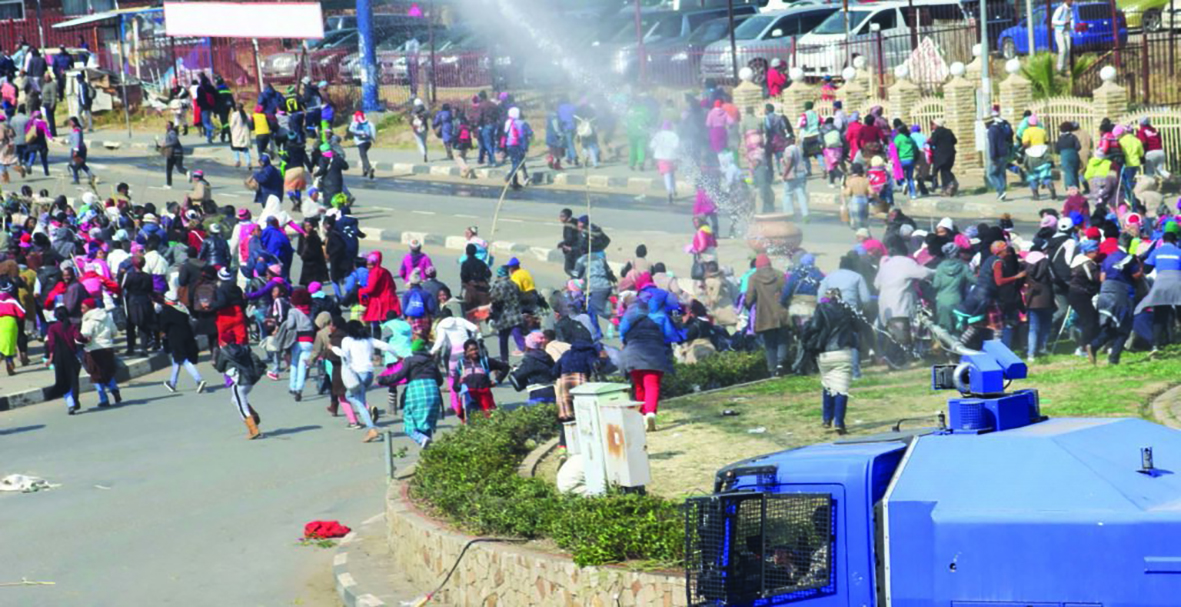Staff reporter
The Lesotho Democratic Congress (LCD) leader Mothejoa Metsing lost a land dispute for a Moshoeshoe II site whose judgement was appealed.
The Apex Court indicated that the former Deputy Prime Minister acquired the land fraudulently.
Metsing was the second respondent in the case whose applicant, Madoda Ramajoana was challenging the transfer of the property to the LCD leader.
The other respondents are Leseteli Malefane, (first), Registrar of Deeds (third), LAA (fourth) and Attorney-general (fifth).
One of the prayers of the originating application was that the court order declares null and void the transaction of sale of Plot No.13281 403 between Malefane and Metsing.
The case was heard by the Court of Appeal as an entreaty against the judgement of the land court Justice Sakoane Sakoane.
The order of the applicant sought an order that the deed of transfer registered under No. 24213 involving plot No. 13281-403, Moshoeshoe II, Maseru held by Malefane be cancelled and that in terms of section 7 of the Deeds Act 1967.
The order of the application requested the court to name Ramajoana as the owner of the property while also declaring as null and void the transaction of sale of a plot between Metsing and Malefane.
The Land Court granted the prayers of Ramajoana.
Malefane appealed the judgement.
The President of the Court of Appeal Dr. Kananelo Mosito when evaluating the appeal noted that the first complaint by the appellant (Malefane) was that, the learned Judge (Justice Sakoane) erred in holding that the signature of the deed of transfer in favour of the appellant was not that of the first respondent in as much as the evidence established, on a balance of probabilities, that the documents were signed by the first respondent.
He complains that there was no evidence that the documents were signed by the first respondent’s wife with the purpose of facilitating transfer in favour of the appellant. He further charges that, there was no evidence that the first respondent’s wife forged the signature of her husband.
The appellant complains that there was no evidence that the first respondent and his wife did not communicate. He goes further to say that, the probabilities are high that the first respondent signed the power of attorney authorizing transfer of his rights to the appellant as well as the deed of transfer, Mosito said.
He indicated that the problem with this ground of appeal is that it ignores the fact that, on the papers as pleaded in the originating application, the first respondent alleges that his signature was forged.
In his answer to the originating application, the appellant denies that the signature was forged, yet the first respondent’s wife says the husband was never involved in the processing of the deed transfer papers. It cannot be validly contended that the signature that is denied by the owner cannot be said to have been forged where there is no evidence to the contrary.
The second ground according to the appeal judgement is that Sakoane erred in holding that the transfer by Malefane first respondent of his rights to and in immovable property held under lease number 13281-403, was fraudulent in as much as there is no evidence that the appellant acquired his rights as a result of fraudulent conduct on his part or on the part of any person.
There is no substance in this ground as well. The evidence adduced before the court a quo (Sakoane) clearly reveals that the first respondent was not involved in the purported transfer of his rights in the plot subject of dispute, the judgement noted.
It added that as clearly as it appears from section 17(1) of the Deeds Registry Act, deeds of transfer must be executed in the presence of the registrar by the owner of the immovable property described therein or by a legal practitioner, notary or conveyancer authorised by power of attorney, to act on behalf of the owner, and shall be attested by the registrar.
In the present case, it is the first respondent’s case that he never appeared before Advocate Ramafole authorising her by power of attorney, to act on his behalf, shall be attested by the Registrar.
It is also clear that, despite the fact that Advocate Ramafole’s name had been listed as one of the names of the witnesses of the appellant, who were to be called in terms of the Rules of the Court quo, she was called. As required by the section 17(1) of the Act, deeds of transfer must ‘be executed in the presence of the
registrar by the owner of the immovable property described therein or by a
legal practitioner…authorised by the power of attorney.’ As correctly submitted by Advocate Lephuthing, the purported power of attorney filed off record, purported to ‘grant MRS MANEO
RAMAJOANA General Power of Attorney in respect of my land as held under Lease
NO. 113281-403 (Maseru) to deal with, develop, encumber with mortgage, transfer
and to do whatever she may consider to be necessary and/or essential and
whatever may be incidental to the above.‘ That could not be done, as MRS MANEO RAMAJOANA could not, according to section 17(1) of the Act, be granted the General Power of Attorney in respect of the plot as held under Lease No.113281-403 to transfer it to the appellant (Malefane), the judgement pointed out.
It added that the purported power of attorney was clearly invalid regardless of being had to the terms of the said section.
Had the learned judge brought his mind to bear on the pleadings and the evidence tendered off record, he should and must have held that the first respondent must have consented to the transfer and actually authorised the transaction between him and the appellant given that the first respondent’s wife was entitled to apply for ministerial consent to effect the transfer of rights from the first respondent to the appellant; in all probability the deed was signed and/or authorised by the first respondent.
The date of birth of the first respondent was misstated by mistake in the deed of transfer. As I pointed out above, there was overwhelming evidence that the first respondent had not authorised the sale and the transfer transactions. There was therefore no authorisation by him.
The Last ground of appeal is that, in all the circumstances and in view of the evidence tendered off record the learned judge ought to have dismissed the first respondent’s claim with costs to the appellant. As indicated above, the invalid power of attorney could have not authorised the sale and transfer transactions in law. Therefore, for these reasons I have come to the conclusion that the appeal should be dismissed with costs and the order of the Court a quo confirmed, Mosito handed down the judgment.
The case was before Mosito, Dr. Musondo and Chinhengo.
Appearing for Malefane was Advocate Qhalehang Letsika while Advocate Christopher Lephuthing was representing the respondents in the appeal battle.

Your Trusted Source for News and Insights in Lesotho!
At Newsday Media, we are passionate about delivering accurate, timely, and engaging news and multimedia content to our diverse audience. Founded with the vision of revolutionizing the media landscape in Lesotho, we have grown into a leading hybrid media company that blends traditional journalism with innovative digital platforms.










